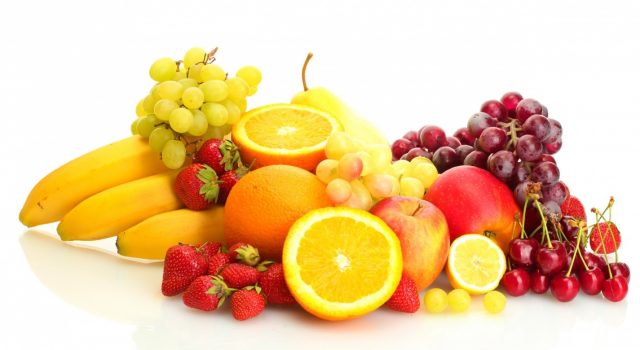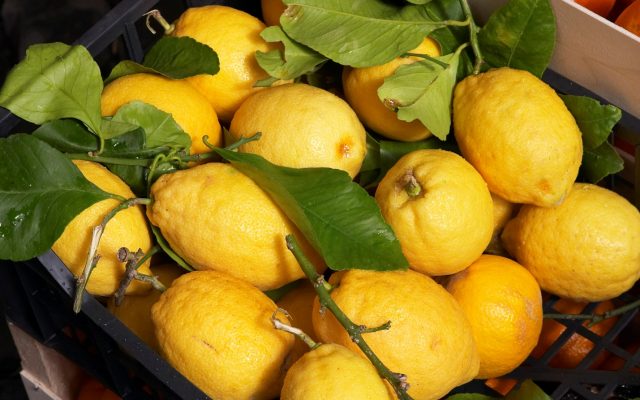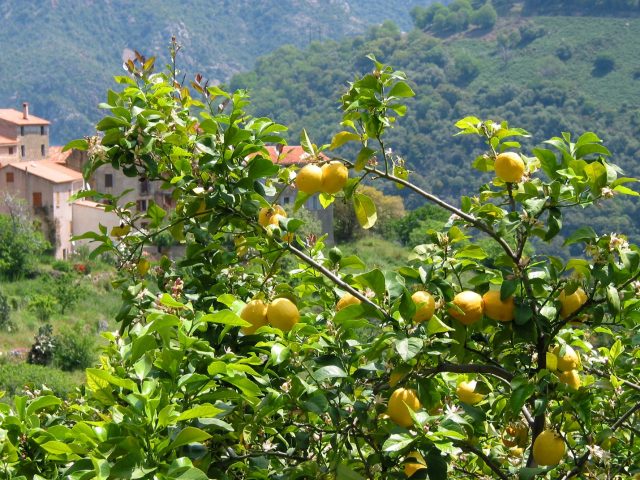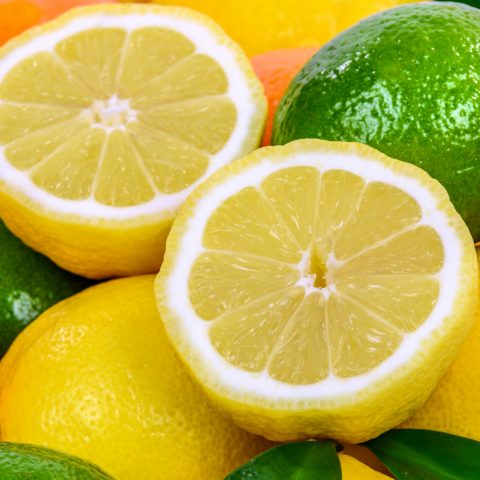Content
A lot has been written about the benefits of lemons: in the list of references there are both works of fiction and scientific reports. Every part of the fruit is usable. The beneficial properties of lemon juice and pulp are used internally and externally. Peel and candied peel are made from the peel; they have become indispensable ingredients for baking and making desserts. Lemon is a fruit or vegetable - such a question seems strange only at first glance.
Lemon is a fruit, vegetable or berry
Not everyone thinks about the origin of this unique citrus. It turns out that disputes about its belonging to one of the groups of the generally accepted classification have been going on for many years. There are special theories, the proponents of which classify lemon as one of the types.
Lemon is considered a fruit. Perhaps the reason for this is its citrus origin. Citrus fruits are considered an addition to the dessert table. In fact, citrus fruits are great for meat and fish dishes: it is impossible to consider lemon as a fruit on such a single basis.
Of course, lemon is not a vegetable. According to the accepted classification, it does not develop as a root crop or vegetable crop with a developed aerial part. Lemon grows on a tree, which makes it a fruit and berry crop. All citrus fruits are related to the orange subfamily. This is a class of dicotyledonous plants, the fruits of which are hybrid species. Lemon can be classified as a modified berry in terms of the characteristics of the fruit.
The history of the appearance of lemon
The oldest citrus on the planet, contrary to common misconception, is citron. On its basis, thanks to the natural change in climatic conditions, lemon appeared. Citron is still successfully cultivated in the Chinese provinces and along the shores of the Mediterranean Sea.
The lemon was discovered by the Arabs. Scientists suggest that India became the birthplace of this citrus. From there, the fruit was brought to Pakistan, and then it went to the countries of the Middle East. The first records about him were found among the books of Arab merchants, they are dated to the 8th century.
Europeans learned about citruses in the 11th century. They were brought from China. The French were among the first to try fruit lemonade. In the XII century. it began to be sold everywhere. Lemons appeared in America thanks to Christopher Columbus, who brought them there by ship from Spain.
Later everyone in Russia learned about lemons. Under Peter I, the tree was brought from Holland and successfully rooted in the soils of the Caucasus.
What does a lemon look like
The fruit lemon tree, on which citruses grow, reaches 5 - 8 m in height. This is an evergreen plant, the leaves on it exist for 12 months, then gradually change to new leaf plates. The average lifespan of a tree is 30 years.
The crown of an adult tree takes on a pyramidal shape. The leaves that form it stretch up to 10 - 15 cm, reach 5 - 8 cm in width. They have a glossy rich green surface. On the reverse side, they can be matte and lighter. The peculiarity of the leaves is their lemon scent. When rubbing the sheet between the fingers, it becomes more tangible, sharp.
Flowers bloom in the leaf axils. They are solitary, can become creamy or remain white. It depends on the variety.
A tree and its fruit are called lemon. The fruit is an oval orange. It can grow up to 6 - 9 cm, up to 5 - 6 cm in diameter. Both ends of the fruit are slightly elongated, a dense nipple forms on one of them.
Description of the fruit:
- The rind can be smooth or covered with small bumps. It depends on the variety. A layer of white, less dense substance is hidden under the dense skin, which is especially valuable for medicinal purposes;
- The skin color ranges from light yellow to bright yellow. Due to the shade of the peel, a special definition of the color scheme has appeared: "lemon";
- The pulp is divided into segments, this is a feature of the internal structure of the fruit. The segments contain hairs that are filled with lemon juice. In addition, the pulp contains seeds. The number of seeds depends on the variety and varietal characteristics. There are varieties that do not propagate by seed. Lemon pulp is known for its pronounced flavor and high juice content.
The tree begins to bloom in spring, fruits are formed in summer, and reach technical ripeness in autumn.
Where lemons grow, in which countries
Lemons can be grown in greenhouse conditions, they grow on the territory of glazed balconies where it is constantly cold in winter. But the natural conditions for full-fledged fruit formation have a narrow climatic range. Lemons are good for coastal areas with moist soils and cool sea air. The acidity of the soil on which the citrus will be comfortable should be in the range of 5.5 to 6.5 pH.
When the air temperature is below -6 ° C, the trees freeze and cease to bear fruit. Suitable for the growth and development of citrus fruits are:
- Italy (especially its eastern part - Sicily);
- Spain;
- Greece;
- North and South Cyprus;
- Turkey.
On the island of Sicily, lemons are grown in a special way. For the past seven decades, local growing companies have been using a special method that allows them to harvest twice a season. To do this, in the summer, the trees stop watering. The drought period lasts about 60 days, then an active solution of nitrogen-containing complexes is introduced under the root. This provokes abundant flowering of trees, followed by autumn-winter fruiting. This method is only suitable for use in the Mediterranean Sicilian climate. This technology does not bear fruit in other countries.
Where lemons grow in Russia
In Russia, lemon trees are successfully cultivated on the Black Sea coast. There are private plantations in the South Caucasus where lemons are grown by trenching. This method helps to prevent freezing of the root system during the formation of recurrent frosts and the onset of abnormally low temperatures.
On the territory of the former USSR, citrus trees successfully winter and bear fruit in Tajikistan, Moldova, Uzbekistan.
How a lemon grows
Usually lemons are bred by planting seedlings of the selected variety. When the trees reach a height of 25 - 30 cm, agricultural techniques begin to systematically form the crown. To do this, pinch the top, activating the growth of lateral branches. Then the pinching is repeated after the next 25 - 30 cm. The peculiarity of this species lies in constant growth. The development of the tree never stops.
After fruit emergence, harvesting begins at the earliest stage of ripeness. This is due to the fact that lemons ripen during transportation and can be stored for a long time. Green fruits can be stored for about 4 months and the degree of ripeness can be controlled. Additional exposure to ethylene allows for faster ripening.
When the lemon ripens
The regular lemon tree begins to bloom in spring. It lasts for several weeks, then the fruits begin to ripen.As a rule, the harvest is carried out in the summer, but the fruits reach full ripeness in the fall. Lemons in many areas are harvested light green or pale yellow. Ripe fruits are considered to be firm to the touch, which are covered with an even yellow skin.
If the fruit is soft, it means that it is overripe. Unlike most related Pomeranians, the ripeness of a lemon can take a long time. Overripe lemon pulp becomes more juicy. Overripe lemon can be kept cut open for several days. Then the flesh becomes moldy and flabby.
Where is lemon applied
The main area of application of lemons is cooking. The fruit is 60% pulp, 40% is the peel. The special taste, the ability of lemon juice to affect products makes the fruits indispensable in the preparation of any dishes:
- pulp and juice are used for salads as a dressing and an additional ingredient; juice is used for marinating meat, fish, poultry;
- lemon juice plays a special role in the preparation of desserts: it is added to enhance the flavors of creams, mousses, jellies and puddings;
- the zest is used to prepare a variety of pastries, there are various recipes for lemon pies, cakes and pastries.
Lemon juice occupies a special place in the preparation of drinks; it is mixed with alcohol. Lemonade is prepared from the pulp, which is an excellent thirst quencher.
For medical purposes, the chemical composition of the fetus is important. The content of vitamin C makes it useful for vitamin deficiencies, colds, anemias of various kinds.
All parts of the fruit are used to prepare cosmetic recipes. Pulp pomace and oil extracts are used by renowned pharmaceutical and cosmetic companies. They manufacture products for the face, hair and body. Due to the content of tannins, the fruit has whitening properties, which is in demand in the preparation of special masks for the skin of the face. The scent of lemon has become one of the basic components in the manufacture of perfumes, aromatic oils and candles. This smell is recognizable and loved by many.
The tandem of lemon juice, soda and vinegar makes fruits indispensable in everyday life. Mixtures based on these components are able to clean kitchen utensils to a shine. Many housewives still use fruit juice to whiten things. It is an alternative to chemical formulations that works effectively and is not harmful.
Conclusion
Lemon is a fruit or vegetable: this question arises for many who think about the belonging and classification of fruits. For many, it is a misconception to classify lemon as a fruit due to the presence of juicy fruits. Hybrid citrus, which has become a modified berry, occupies a special place in the life of a modern person.















